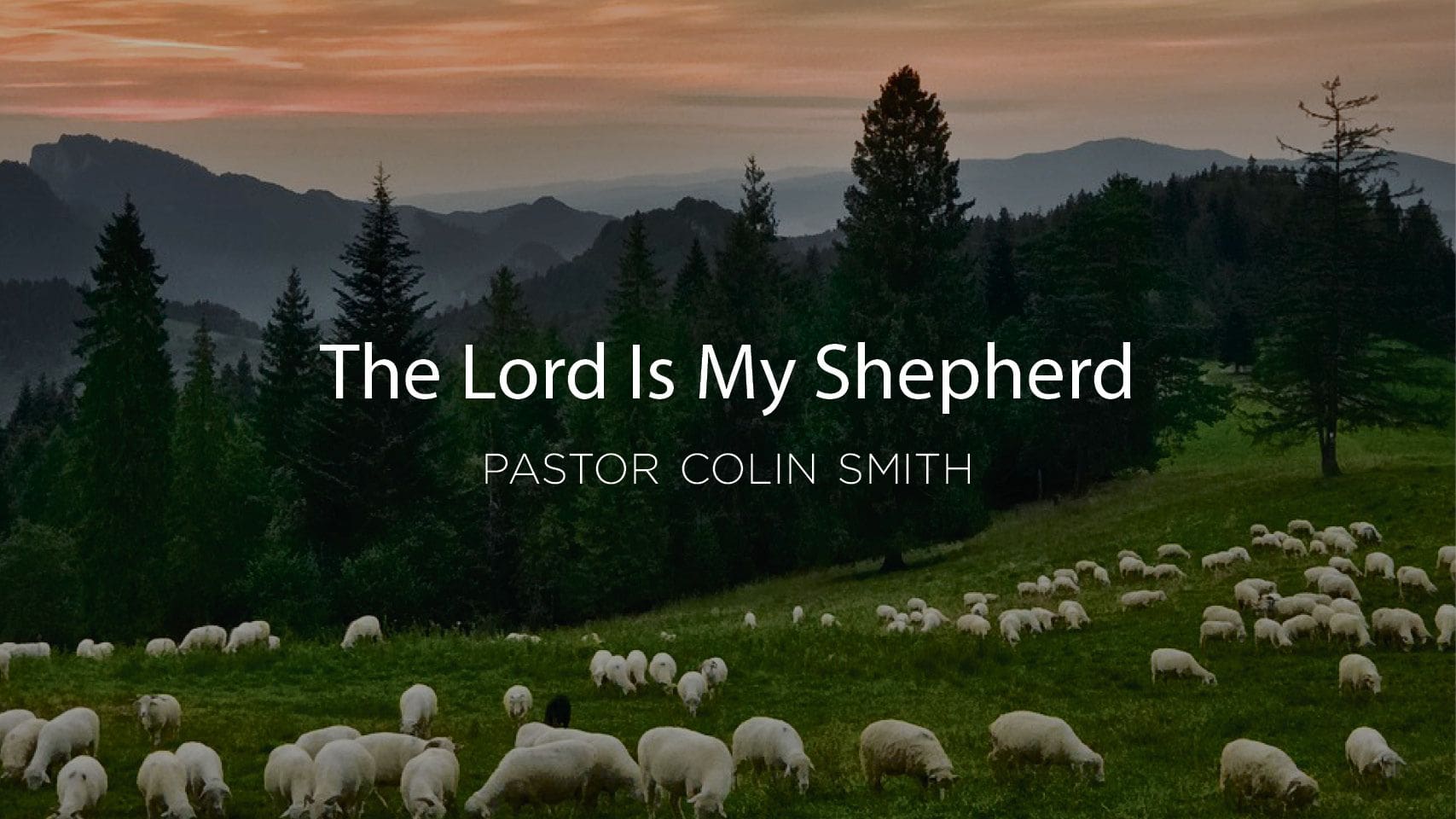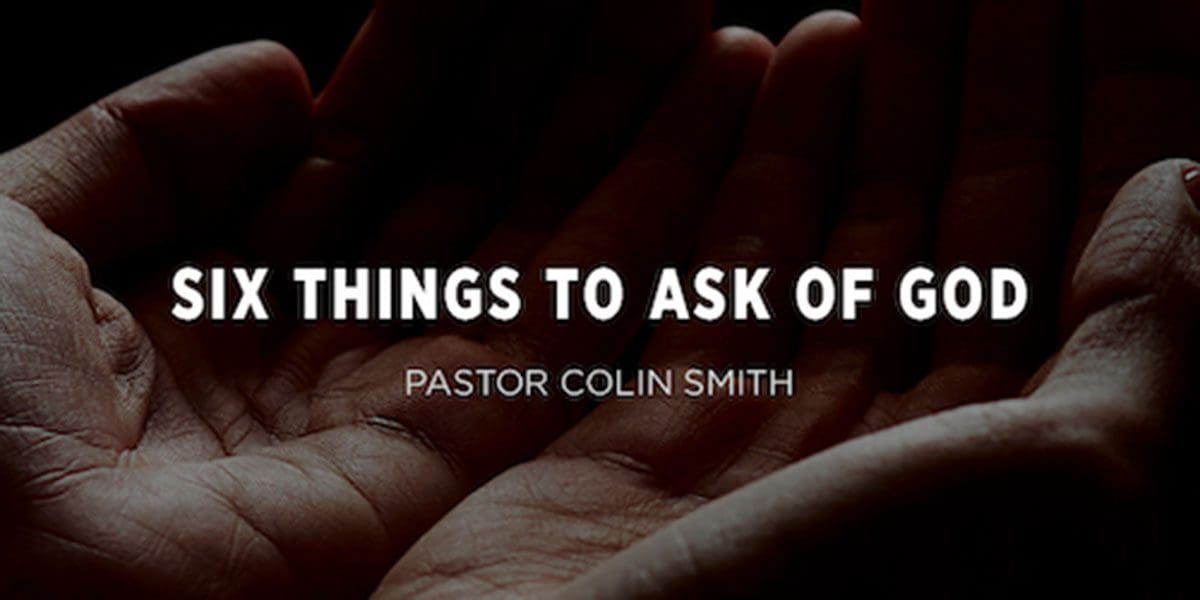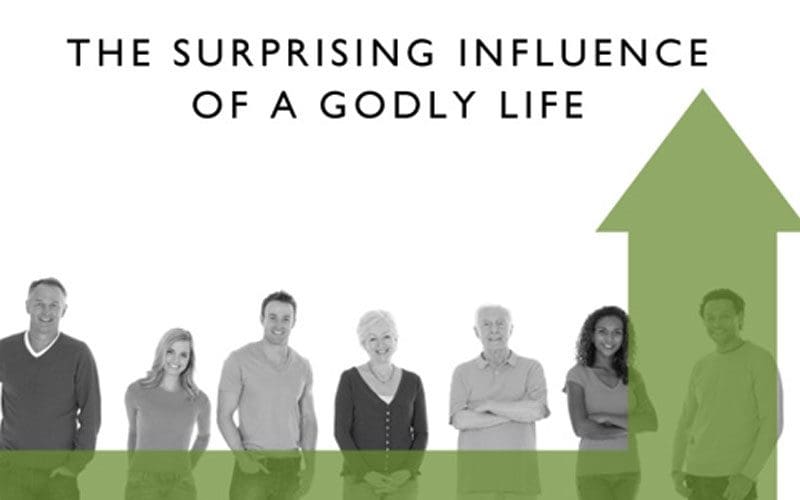Please open your Bible again at Psalm 23. As we move through this Psalm, we are seeing why the greatest blessing any of us can ever know in life is to be wholly owned by the Son of God.
When the Lord is your Shepherd, when you are bought and born into the flock of God, you can say,
“He leads me into rest and into righteousness. He restores me. He brings me back when I wander, and picks me up when I falter. He guards me: Even though I walk through the valley of the shadow of death, I will fear no evil because my Shepherd is with me.
Today we come to a fourth blessing that belongs to the flock of God. The Good Shepherd sustains me. That is, He gives me all that I need to keep going.
My son Andrew is a long-distance runner and has competed several times in the iron man. That’s where you swim 2 miles, cycle 112 miles, and then run a full 26 mile marathon.
The iron man is a wonder to behold. How in the world do these people keep going?
Let’s broaden that out. How will you keep going? What will sustain you when you feel tired, drained, jaded, and spent.
David tells us ho God sustained him in the verse we are looking at today. You prepare a table before me in the presence of my enemies; you anoint my head with oil; my cup overflows, (Psalm 23:5).
God often uses material things to speak to us about spiritual things. And here God uses three things that we can touch and handle: a table, oil, and a cup to communicate how He sustains us.
1. The Table
God Sustains by giving strength. You prepare a table before me in the presence of my enemies (v5). This is eating in style! Forget grabbing a bag of chicken nuggets from the drive through and eating them in the van on your way home from work. We are talking Thanksgiving Dinner! The table spread: the place settings, the flowers, the candles, the platter loaded with steaming turkey, and the bowls filled with all the fixings. Someone has prepared a table.
David says, “You prepare a table before me.” Try and take in this picture. You arrive home after a hard day at work. You are tired, and jaded, your energy is spent.
Someone is in the kitchen, cooking up a storm. So, you say, ‘let me help.” But this person says, ‘No. You sit down. Let me prepare this for you.’ So, you sit down and watch as this person prepares a meal before you. When it is done, you come to the table, and as you eat, your strength is renewed. That’s the picture.
Here’s the question. Who would do that for you? David says, ‘The person who does this for me is the Lord Himself.’ You prepare a table before me.
Notice that this is present tense. This is not something that God did a long time ago, it’s not even what God does once in a while. It is what God always does for His people: You prepare a table before me.
God uses this picture to tell you that He will sustain you by giving you strength. As your body is strengthened by a good meal, so you will be sustained as the Lord Himself feeds you.
But there’s something else here. You prepare a table before me in the presence of my enemies (v5).
David’s life was an unrelenting battle. In his early years, he was a shepherd, despised by his older brothers. Then, he lived as a fugitive, hunted by king Saul. When he became king, he inherited a divided kingdom, where rival tribes were filled with seething resentments, and alienated by deep distrust.
In later years, David suffered as his family was torn apart by cycles of abuse, violence and death. At one point, he had to free for his life when his own son led a rebellion against him.
How in the world did he keep going? How will you keep going in the light of the many pressures, burdens, conflicts and troubles of your life?
God prepared a table for David. He renewed David’s strength even in the presence of his enemies. And what God did for David, He can do for you.
God gives strength to His people He will sustain you in a world of trouble. You prepare a table before me in the presence of my enemies.
2. The Oil
God sustains by giving purpose. You anoint my head with oil (v5). Oil was used in the Old Testament to commission certain people for the work God had called them to do. Prophets priests and kings were all anointed with oil because God had given them a particular assignment. If the table speaks of new strength, the oil speaks of new purpose.
There is a beautiful description of how Aaron was anointed with oil as a sign that God had chosen Him to serve as High Priest. Behold, how good and pleasant it is when brothers dwell in unity! It is like the precious oil on the head, running down on the beard, on the beard of Aaron, running down on the collar of his robes! (Psalm 133:1, 2).
This was not a little oil rubbed onto Aaron’s forehead. The anointing oil was poured out over his head
It ran over his beard, dripped onto his collar and soaked into his robes. When David says, “You anoint my head with oil,” he must surely have had in mind the day he was anointed as king. Samuel took the horn of oil and anointed him in the midst of his brothers. And the Spirit of the LORD rushed upon David from that day forward (Samuel 16:13). The oil speaks of God giving purpose, a calling, an assignment. In the Old Testament, only a few people were anointed with oil, but in the New Testament, all of God’s people are anointed with the Holy Spirit.
A sense of purpose sustained David. ‘God has given me this work to do. I’ve been called. I’ve been anointed. If you lose sight of why you are here and what God has called you to do, you will soon be tired, jaded, drained and spent.
But here’s the good news: God has work for you to do. For we are his workmanship, created in Christ Jesus for good works, which God prepared beforehand, that we should walk in them (Eph 2:10). Find out what God has called you to do and pursue it. And as you do, God will sustain you
3. The Cup
God sustains by giving joy. My cup overflows, (v5). There is a downbeat version of Christianity that goes something like this: In this world, you will be surrounded by enemies. And somehow you have to get through this.
You have to endure. You have to stick it out. You have to put up with it. And if you do, you will be blessed in the end. When your life in this world is over you will go to heaven and then you will have joy.
The down beat version of Christianity boils down to this: Life stinks, but heaven is coming.
But that is not what David is saying here. Here is a man who knew plenty of trouble in his life, and yet he says, ‘my cup overflows!’ Here in this fallen world, with all that I face and all that I suffer; Even now while my enemies are still present! Even here in the dark valley, my cup overflows! Jesus said, “In this world you will have trouble.” (John 16:33) But He also said, “These things I have spoken to you that my joy may be in you and that your joy may be full” (John 15:11).
David says, “my cup overflows.”
Some months ago, I had the opportunity of helping move my aunt into a care home. That meant sorting through her stuff before selling her home. We found some fascinating things. One of them was a ration book from the second world war. During the war, food was rationed. People in Britain had a little book with a slip that entitled you to buy a small amount of meat and a certain number of eggs, each week.
We are used to showing up at the store with coupons to get cheaper prices. They had to show their ration book for permission to buy. The blessings of God to us in Jesus Christ are never rationed. From the fullness of His grace we have received one blessing on top of another. His grace just keeps coming. It overflows.
When Isaiah describes God’s forgiveness, it is not enough for him to say that God will pardon. He says God will abundantly pardon (Isa 55:7).
When the psalmist describes how God brings hope, it is not enough for him to say that with God there is redemption. He says that with the Lord there is plenteous redemption (Psa 130:7). Paul speaks not just of the riches but of the unsearchable riches of Christ (Eph 3:8). Jesus speaks about giving us life abundantly (John 10:10).
When the Prodigal Son returned home, the father did not meet him with reluctant grace. “So, you have decided to come back, have you? Well you had make sure you don’t mess up again.”
No. The Father ran out to meet the son. He embraced him and kissed him. Put the best robe on his back and a ring on his finger.
When the Prodigal Son came home, the father did not tell him, ‘There might be a cold hot dog in the fridge. He said ‘bring the fattened calf and kill it, and let us eat and celebrate.
That’s what David experienced. Abundant pardon! Plentiful redemption! My cup overflows.
The Table, the Oil and the Cup. The Table reminds us that God sustains by giving strength. The Oil reminds us that God sustains by giving purpose. The Cup reminds us that God sustains by giving joy How do you get this strength, purpose and joy? Where do you find it? David said these things were his. How do they become yours?
The answer is that we are blessed with every spiritual blessing in Christ Jesus (Eph 1:3). That was true for David who lived many years before Jesus, and the same can be true for us living many years after Jesus.
The whole of the Bible points us to Jesus. Our Lord knew the 23rd Psalm. So, what did the table, the anointing and the cup mean for Him?
What The Table Meant For Jesus
David said, “You prepare a table before me in the presence of my enemies.” What did the table mean for Jesus?
On the night He was betrayed, Jesus met with His disciples to celebrate the Passover. Matthew tells us that, “when it was evening, he reclined at table with the twelve (Matt 26:20). And Jesus sat at the table in the presence of His enemies. Judas Iscariot was at the table with Him.
Jesus took the bread in His hands and He broke it, as He had broken the bread when He fed the crowd of five thousand people. But this time He said, “Take, eat, this is my body (Matt 26:26). Then, he took a cup, and when he had given thanks he gave it to them, saying “drink of it, all of you for this is my blood of the covenant, which is poured out for many for the forgiveness of sins (Matt 26:27, 28).
“This is my body… This is my blood.” Jesus does more than prepare the meal. Jesus is the meal.
Jesus gives you strength by giving you Himself. He says, “I am the bread of life,” (John 6:35, 48). Whoever
feeds on me… will live because of me (John 6:57).
The heart of the Christian life is that Jesus gives you Himself. He is your strength. And you feed on Him
by believing in Him. As you trust Him, you will draw strength from Him.
What The Anointing Meant for Jesus
David said, ‘You anoint my head with oil.’ What did the anointing mean for Jesus? What task what calling was assigned to Him? Remember the picture of Aaron being anointed for His task as the High Priest. Oil was poured on his head, ran down his beard, and soaked into his robes.
Something similar happened to Jesus in the house of a man called Simon. Jesus had gone there with a group of friends. Among them was Mary, the sister of Lazarus who Jesus had raised from the dead. She was filled with gratitude and she wanted to do something to show her love for Jesus. She had a jar of expensive ointment. Mark tells us that she broke the flask and poured it over the head of Jesus, (Mk 14:3).
The disciples, and especially Judas thought this was a waste. But Jesus said, “She has done a beautiful thing…She has anointed my body beforehand for burial” (Mark 14: 6,8).
David was anointed as king. Jesus was anointed for burial! This was the work the Father had called Him to do. Your task, your mission is to give your life. It is to be crucified, dead and buried. It is to lay down your life for the sheep.
Jesus was anointed for death and for burial, so that you should be appointed to eternal life, (Acts 13:48). He died so that you might live! And He anoints His own with the presence and power of the Holy Spirit so that you may be equipped for the work God has prepared for you to do.
What The Cup Meant for Jesus
What did the cup mean for Jesus? Jesus spoke about the cup in the Garden of Gethsemane. Going a little farther he fell on his face and prayed, saying, “My Father, if it be possible, let this cup pass from me; nevertheless, not as I will, but as you will.” (Matthew 26:39). What was this cup? In the book of Revelation, there is a powerful description of the final judgment that awaits unrepentant sinners. The wine of God’s wrath, poured full strength into the cup of His anger (Rev 14:10).
This is the cup that was given to Jesus. If the thought of it made Him shrink back in horror in the Garden of Gethsemane, what must the reality of drinking this cup have been when he endured it on the cross?
Why did the perfect, holy, Son of God have to drink the wine of God’s wrath poured full strength into the cup of His anger? Because all we like sheep have gone astray; We have turned – every one – to his own way; And the Lord has laid on Him the iniquity of us all, (Isa 53:6).
He bore our sins in His body on the tree (1 Peter 2:24). And when he took our sins on Himself, the wrath of divine justice that should have been ours, fell on Him.
Jesus drank the cup of God’s wrath so that you may drink the cup of God’s blessing.
Try and take in this picture that I have adapted from an old Scottish pastor[1]: God holds a cup in His hand. The cup is full and it has your name written on it. He hands it down to you, and you shrink back in horror, because you know what is in the cup. The wine of God’s wrath poured full strength into the cup of His anger.
But before it reaches your hand, the Good Shepherd reaches up and takes it into His hand. He knows what is in the cup, and as he holds it, he says “Father, if it be possible let this cup pass from me. But then He says, “Nevertheless, not my will but yours be done.”
The Good Shepherd drinks it. The wine of God’s wrath poured full strength into the cup of His anger. He drinks all of it, until the cup is empty.
And then He takes the empty cup and fills it, until it is running over. What’s in the cup now? Love. Grace. Mercy. Peace with God. Everlasting life. And now He offers this cup to you.
Jesus drank the cup of God’s wrath so that you should receive the cup of God’s blessing. “My cup overflows!”
The Invitation
I want to speak now to the person who is not yet a believer. Perhaps you have become used to hearing the claims of Christ and brushing them off, ‘I’m not ready. It’s not for me. I don’t need this.’
When you hear that the good shepherd leads His sheep into rest and righteousness; When you hear that He restores His sheep, bringing them back when they wander and picking them up when they falter; When you hear that the Good Shepherd guards His sheep, that He walks with them through the valley of death, that they don’t fear the shadow because they know that He is with them; And when you hear that the Good Shepherd sustains His sheep, by giving them strength and purpose and joy…Isn’t there something in you that says, ‘I would like these things to be true of me?’
Isn’t there something in you that would like to be able to say, ‘The Lord is my shepherd. And I shall not want because He leads me, He restores me, He guards me and He sustains me.’
I am here to say to you today, ‘These gifts can be yours!’ The Lord Jesus Christ came into the world to gather a flock and make them his own. Why should you not be among them?
So how do you become one of Christ’s sheep? Let me give it to you in two words, they are word of Jesus Himself, ‘Hear’, and ‘Follow.’
My sheep hear my voice…and they follow me, (John 10:27).
Hear! Recognize the Shepherd’s voice! That’s what His sheep do, they hear His voice.
You could say, ‘I went to church today and I heard a talk about the shepherd and the sheep, and he said some things about a table oil and a cup.’
But there’s another way you could respond. You could hear the Shepherd’s voice. You could say, “God is speaking to me. God is awakening me. The Good shepherd is calling me and making me His own.”
Jesus said, No one can come to me unless the Father who sent me draws him (John 6:44).
If you find a desire in your heart that you should enjoy the leading, the restoring, the guarding and the sustaining that the Good Shepherd gives to all of His sheep. You have every reason to say, ‘God is drawing me.’ Right now, you are hearing the Shepherds voice and through His Word, He is calling you.
Right now, the Good Shepherd is inviting you to find strength at His table. He is holding the oil ready to anoint you for a new purpose. He is offering the cup of blessing so that your cup may be full.
Jesus says, ‘My sheep hear my voice’ and when you hear the voice of the Good Shepherd, there’s only one way to respond. And that is to follow Him. My sheep hear my voice… and they follow me, (John 10:27).
Give up being self-owned and self-directed! Submit yourself to the Good Shepherd. He will lead you, restore you, guard you and sustain you. He will give you new strength, new purpose, new joy.
I’m inviting you today to begin a new life in which you follow the Good Shepherd. Give yourself to Him Believe Him, Trust Him, Obey Him, Follow Him.
Then you will be able to say, with David and with all the flock of God, “The Lord is my Shepherd, I shall not want. He prepares a table before me in the presence of my enemies. He anoints my head with oil My cup overflows.
—
[1] Adapted from J. Douglas Macmillan, The Lord Our Shepherd, p.81.





